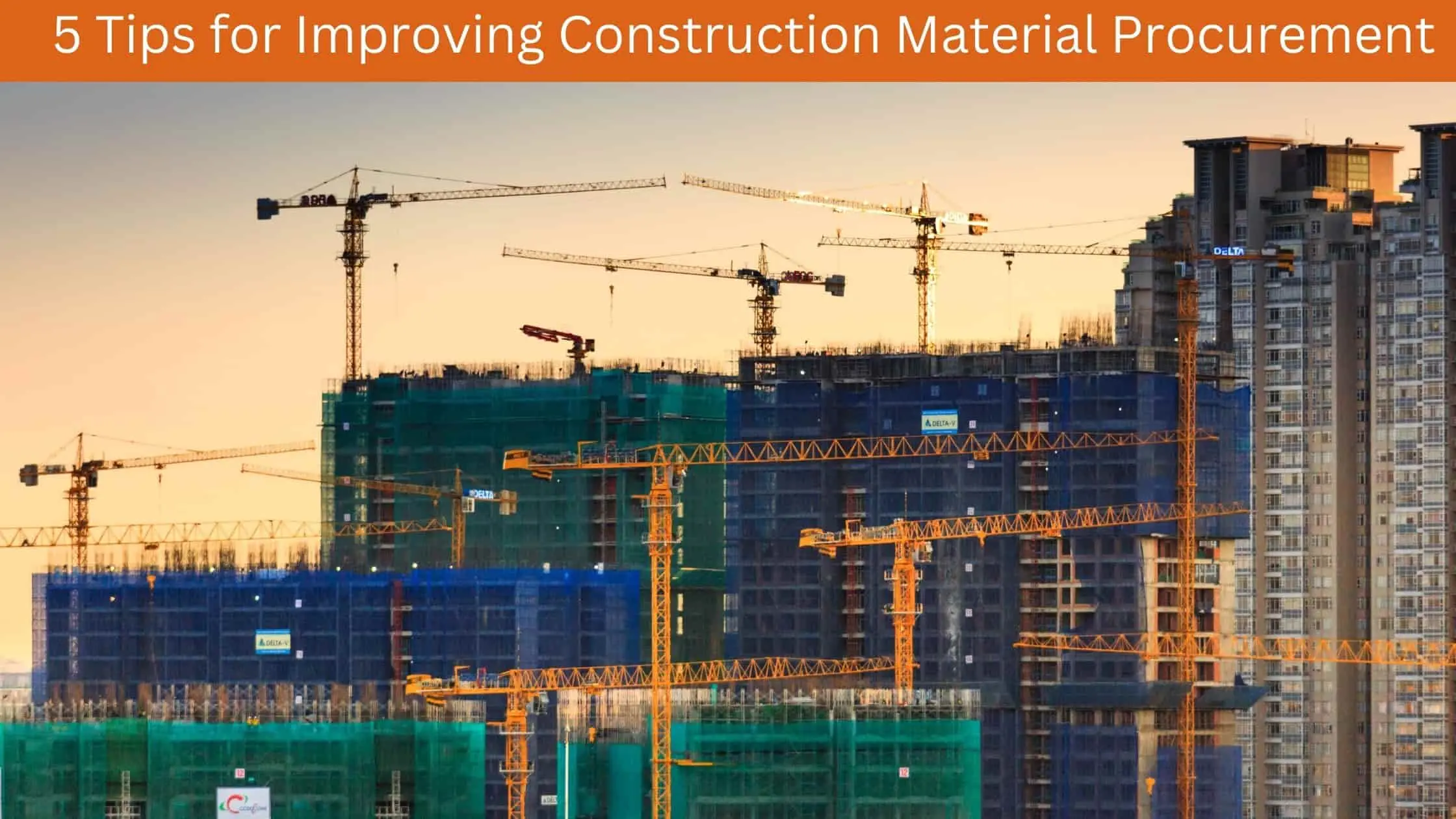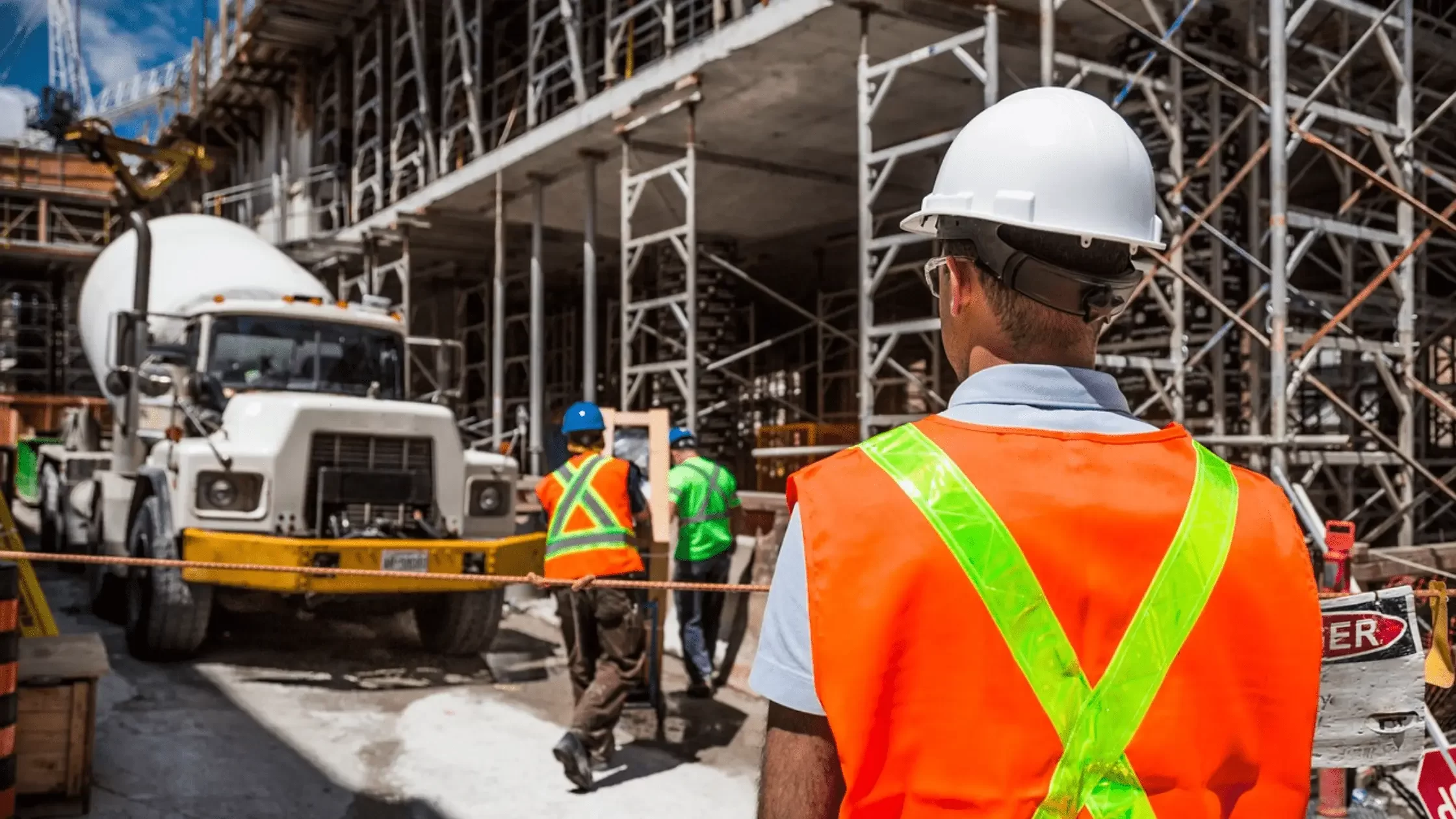5 Tips for Improving Construction Material Procurement
Construction material procurement is a critical aspect of any construction project. Efficient procurement practices can significantly impact the project’s timeline, cost, and quality. Here are five tips to improve your construction material procurement process.
1. Plan Ahead
Planning is essential for successful procurement. Start by identifying all the materials you will need for the project. Create a detailed procurement plan that includes:
- Material specifications: Define the quality and specifications of materials required.
- Quantities: Estimate the quantities needed for each material.
- Timeline: Establish a timeline for when each material should be delivered to the site.
- Budget: Allocate a budget for each type of material.
By planning ahead, you can avoid last-minute rushes and ensure a steady supply of materials throughout the project.
2. Build Strong Relationships with Suppliers
Strong relationships with suppliers are crucial for reliable and timely delivery of materials. To build and maintain good relationships with suppliers:
- Communicate regularly: Keep an open line of communication to discuss requirements, timelines, and any potential issues.
- Negotiate fair terms: Work towards mutually beneficial agreements that ensure fair pricing and reliable delivery.
- Evaluate performance: Regularly assess the performance of your suppliers and provide feedback to help them improve.
Good relationships with suppliers can lead to better prices, priority service, and more flexibility in meeting your project needs.
3. Implement a Digital Procurement System
Adopting a digital procurement system can streamline the procurement process and enhance efficiency. Benefits of using a digital system include:
- Centralized information: Store all procurement-related information in one place for easy access and management.
- Automated processes: Automate tasks such as order placement, tracking, and invoicing to save time and reduce errors.
- Data analysis: Use data analytics to gain insights into procurement patterns, identify cost-saving opportunities, and improve decision-making.
A digital procurement system can help you manage your materials more effectively and reduce the risk of delays and cost overruns.
4. Monitor Market Trends
Stay informed about market trends and changes in the construction materials industry. Factors such as raw material prices, supply chain disruptions, and new technologies can impact your procurement process. To stay ahead:
- Follow industry news: Keep up with news and updates related to construction materials and procurement.
- Attend industry events: Participate in trade shows, conferences, and seminars to network with industry professionals and learn about the latest trends.
- Consult experts: Work with industry experts and consultants to gain insights and advice on procurement strategies.
Being aware of market trends can help you make informed decisions and adapt your procurement strategy as needed.
5. Focus on Sustainability
Sustainable procurement practices are becoming increasingly important in the construction industry. To incorporate sustainability into your procurement process:
- Choose eco-friendly materials: Opt for materials that have a lower environmental impact, such as recycled or sustainably sourced products.
- Evaluate suppliers’ sustainability practices: Assess your suppliers’ commitment to sustainability and choose those who prioritize environmentally friendly practices.
- Reduce waste: Implement strategies to minimize material waste, such as accurate ordering, efficient storage, and recycling.
Focusing on sustainability can help you meet regulatory requirements, reduce your environmental footprint, and enhance your reputation.
Conclusion
Improving construction material procurement is vital for the success of your projects. By planning ahead, building strong supplier relationships, implementing a digital procurement system, monitoring market trends, and focusing on sustainability, you can streamline your procurement process, reduce costs, and ensure timely delivery of high-quality materials. Implement these tips to enhance your construction material procurement and achieve better project outcomes.





